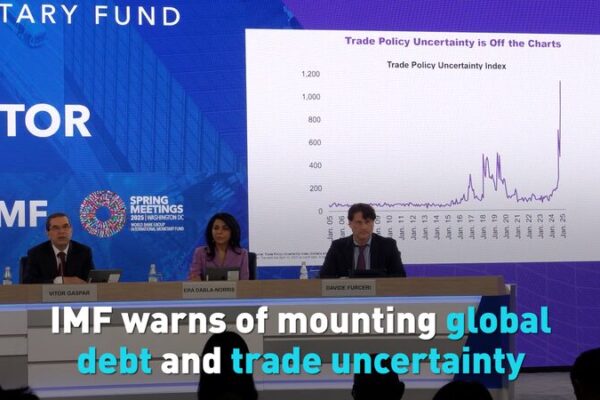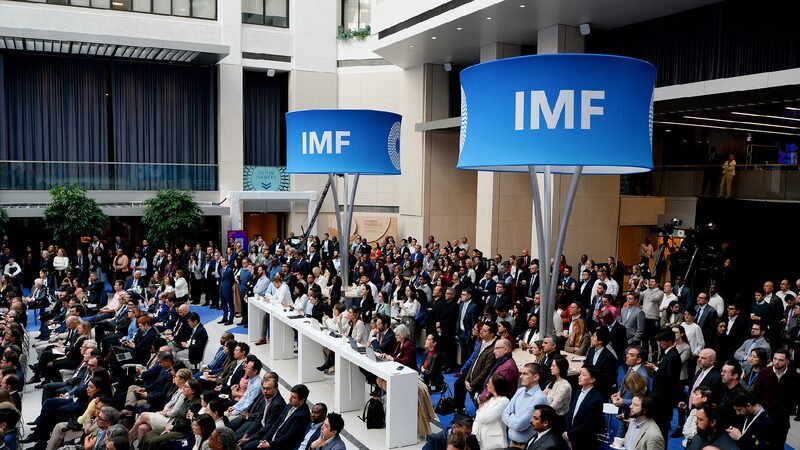The International Monetary Fund (IMF) has sounded the alarm on rising global debt, warning that new tariffs and weakening economies could push debt levels to unprecedented heights.
In a recent blog post accompanying its latest Fiscal Monitor report, the IMF highlighted how recent tariff hikes by the United States and countermeasures from other nations are stirring financial market volatility. These actions are not only dampening growth prospects but also escalating risks worldwide.
“The series of recent tariff announcements have increased financial market volatility, weakened growth prospects, and increased risks,” IMF officials stated. They emphasized that these developments are exacerbating global uncertainty at a time when many countries are already grappling with rising debt and strained public finances.
The IMF pointed out that many nations might need to accommodate new and permanent spending increases, especially in areas like defense. “Rising yields in major economies and widening spreads in emerging markets further complicate the fiscal landscape,” they added.
According to the IMF, global public debt is projected to surge by 2.8 percentage points this year, pushing debt levels above 95% of global gross domestic product (GDP). If current trends continue, public debt could near 100% of GDP by the end of the decade, surpassing levels seen during the pandemic.
In a more severe scenario, the IMF’s Fiscal Monitor suggests that global public debt could reach 117% of GDP by 2027, marking the highest level since World War II. Such an outcome would exceed current projections by nearly 20 percentage points.
“Debt levels may rise even further than the debt-at-risk estimates if revenues and economic output decline more significantly than current forecasts due to increased tariffs and weakened growth prospects,” the IMF cautioned.
The organization also warned that escalating geo-economic uncertainties could amplify debt risks, leading to increased public spending, particularly in defense sectors. For countries vulnerable to trade shocks, the demand for fiscal support might surge, further inflating expenditures.
The Fiscal Monitor estimates that heightened geo-economic uncertainty could boost public debt by about 4.5% of GDP in the medium term. Additionally, tighter and more unpredictable financial conditions in major economies like the United States could have ripple effects on emerging markets, raising financing costs and impacting commodity prices.
“Limited fiscal improvements may further heighten risks from rising interest rates, especially as many countries have substantial financing needs,” IMF officials noted. High interest rates could restrict vital spending on social programs and public investments, while reduced foreign aid complicates financing for low-income nations.
In response to these challenges, the IMF urged countries to prioritize prudent fiscal policies. “In an uncertain and rapidly changing world, putting fiscal houses in order is essential,” they advised. Implementing sound policies within robust fiscal frameworks can build public confidence and help reduce uncertainty, paving the way for more stable economic futures.
Reference(s):
cgtn.com








